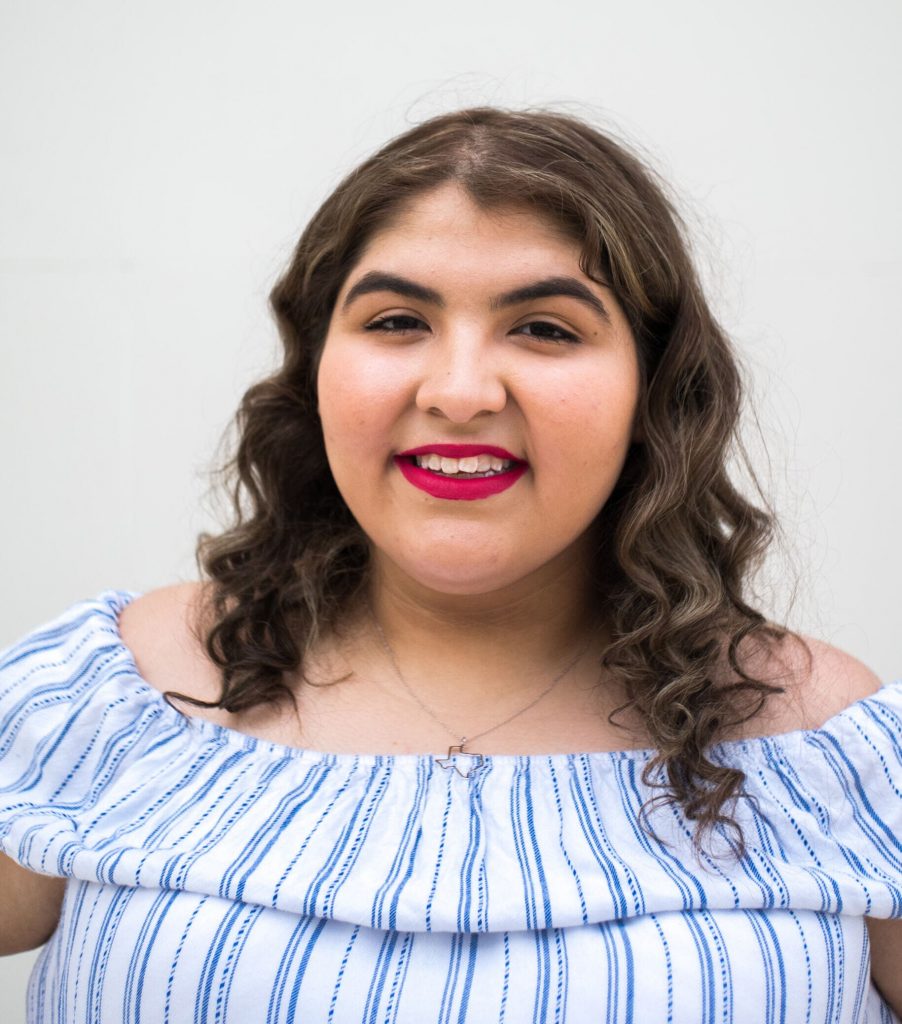
It is an important year in national politics and now that the presidential primaries have passed, we have the same two major-party candidates from 2020.
Presidential elections have been a traumatic experience for me and have impacted my spiritual journey in many ways. Each cycle, my community is always at the forefront, and there is always a new debate about how to deal with the crisis at the southern border. I am always afraid to see what new policies or laws pass that directly impact my family and friends who are awaiting citizenship.
I also continuously stand by and fear for my friends in the LGBTQ+ community as their human rights become hot topics for political fights.
Every election, I fear the results— especially for my friends, family and myself. As the daughter of a Mexican immigrant, I am always angry when immigrants are belittled and given horrible, unfitting names.
As someone who has always had a passion for politics, I remember being so excited to cast my vote in 2016. It was my first time voting in a presidential election, and I wish I had known what was coming next.
I was attending a private undergraduate religious institution. I remember anticipating the results to roll in, only to wake up the next morning and see that Donald J. Trump had been elected the 45th president.
That day, when I arrived at the required chapel service, I was in total shock. Many of my peers were chanting “Make America Great Again” while waving Donald Trump flags and posters and wearing Trump masks.
Looking back, it felt like a moment when Christian Nationalism had begun to ascend again. This became a frightening reality, and I knew my college was no longer my safe space.
I became more fearful of how people would treat me based on my skin color and my background. I knew that I had to be more careful of the way I presented myself. As someone who had just found my faith again and was cultivating my relationship with God, this was a scary time.
As the years went on, I saw a religious agenda play out. The makeup of the Supreme Court had changed.
People didn’t value the diversity of our country. Many times, I was told that being a “Christian” was the right and only way.
There were attacks on marriage equality and reproductive rights from the religious right. I heard Christians thanking God and worshiping President Trump, a man who doesn’t come close to reflecting the heart of Jesus.
Faith has always played a part in shaping how our society functions and has the capacity to influence the way people think and participate in politics. Faith can work from the legislation that gets passed to the mobilization of voters. Faith communities can be great assets to the community by serving as a voting center for elections.
At the same time, churches can be unintentionally harmful when they endorse candidates who have beliefs that do not align with their members. They may also be hurtful when they speak about topics such as immigration, reproductive rights, and marriage equality, forgetting that real people are affected.
As I grew deeper in my faith, I grew a deeper love for politics. At first, this seemed counterintuitive, but my faith is something I found hope in throughout this time. As Christian Nationalism gained more attention, I found it more important to advocate for the oppressed groups during the Trump presidency.
If Trump had really brought “Christian values” back to the White House, as many believed, there would not have been a rise in hate towards marginalized groups. Trump’s America was a scary place for minoritized groups, the LGBTQ+ community, immigrant families and those who were struggling with their faith.
When I think about how faith and politics can intersect, I am reminded of Matthew 22:37-39 and how we are called to love God with all of our heart, which is the greatest commandment.
Then we are to love our neighbors, to go with them through the chaos of life. There are no stipulations or requirements on who can receive our love. This means loving your neighbor who believes differently from you and who may have a different cultural background.
You are called to love your neighbor who identifies differently than you, whether that be their sexuality, race or gender. There are many accounts in scripture where Jesus stood beside the marginalized, exploited, poor, disabled and those who otherwise seemed unworthy of his attention.
This is foundational to my beliefs regarding politics. I vote for candidates who value every person. I advocate for policies that will help families struggling financially, such as the implementation of

